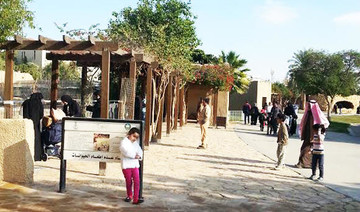The murder of journalist Jamal Khashoggi is a tragedy both for his family and for Saudi Arabia, and those responsible will be brought to justice, the Saudi Ambassador to Germany said in an interview published on Sunday.
“In the end, we will know who did what and when. We take this very seriously,” Prince Khalid bin Bandar bin Sultan told the German newspaper Welt Am Sonntag.
“Our authorities have already arrested 18 suspects in Saudi Arabia, there have been layoffs in the security apparatus. It is obvious that something went wrong. And we are very unhappy about it.
“The whole thing is a tragedy. For his family, but also for our country. I am very sad to see how much of our work has been destroyed as a result. We will ensure that those responsible are punished.”
Khashoggi, 59, was murdered on Oct. 2 in the Saudi consulate in Istanbul. Eighteen Saudis have been arrested in connection with his death. The murder was alien to Saudi culture, Prince Khalid said.
“We don’t do anything like that. We do not deal with dissidents and exiles in this way. They remain Saudi citizens and if they have problems, we take care of them. We always tell them that their homeland is there for them.
“It is beyond my imagination what could have moved someone to do something like this. It is not our policy, not our culture, not our nature. It contradicts everything we stand for.”
Prince Khalid accused opponents of Saudi Crown Prince Mohammed bin Salman of using Khashoggi’s murder as a weapon, and he defended the crown prince’s reform and development policies.
“Many people have an opinion about him without knowing him,” Prince Khalid said. “It is easy to find his policies bold, drastic, hurried. But remember, he took office at a very dangerous time. We were hurtling towards a wall.
“Due to the population boom of the past few decades, a whole generation of young Saudis were about to join an economy that was far from achieving the growth needed to employ and feed all these young people. When Mohammed bin Salman took office, it was clear: If we did not begin to turn our economy around immediately, we were going to hit this wall.
“And instability in our country, home to the holy sites of Makkah and Madinah, would pose a risk not only to ourselves. The crown prince has finally addressed these problems. He has done things that young people here have been hoping for for years.
“I have seldom met someone who deals with every issue of importance with such seriousness, such reflection and such attention to detail. He is engaging in the way he listens and argues. Always constructive, always optimistic, but always very rational as well.
“And that’s why he is also reflective and questioning. How should we provide for the next generation? Why do we waste so much energy? Why do we always do things this way and not in a completely different way? Why, why, why. He’s always asking why. And he finds good answers again and again.”
Prince Khalid spent a year away from Germany amid a diplomatic spat with the Kingdom, and returned on the instructions of King Salman and the crown prince. The crisis was now over, relations between the countries had been restored, and he believed other nations could learn from it.
“Essentially, what we are saying is, call us up and ask before you speak out in public,” he said. “We felt that nobody wanted to hear our point of view.
“We Saudis cultivate open and honest relationships with our partners. We only have a problem if someone does not talk to us when they have a problem with us. I think both sides have now understood that.”
Since his return to Berlin, "we have had very good talks with various representatives of the federal German government," Prince Khalid said.
“It is simply very clear that we have to be partners. Saudi Arabia is currently changing very rapidly and Germany can benefit from this enormously.
“Germans and Saudis should invest together, found joint companies — in both countries. Germany can help us to become a stronger, ultra-modern economy.
“Saudis and Germans communicate differently. We have to overcome these barriers. I'm counting on the many young Saudis who study in Germany. They can bring both worlds together.”




































